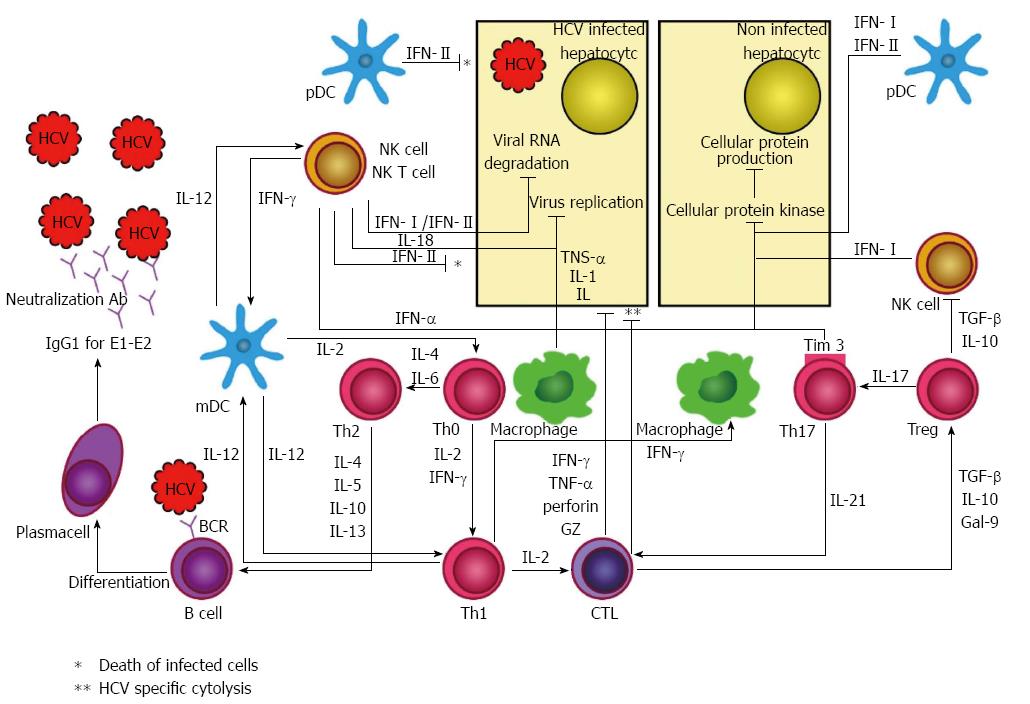Copyright
©The Author(s) 2015.
World J Gastroenterol. Nov 14, 2015; 21(42): 11984-12002
Published online Nov 14, 2015. doi: 10.3748/wjg.v21.i42.11984
Published online Nov 14, 2015. doi: 10.3748/wjg.v21.i42.11984
Figure 1 Summary of immune responses against hepatitis C virus.
In innate immune response, NK cells are activated, which leads to the production of IFNs 1-11. This would inhibit the production of viral particles and destroy their genomes. In addition, in normal cells, antiviral effects are mediated through inhibition of protein synthesis. Adaptive immune responses work through the activation of T cells and production of cytokines that result in inhibition of the growth of the virus and elimination of the infected cells. B cells perform their actions through the production of neutralizing antibodies against the virus. Ab: Antibody; BCR: B cell receptor; CTL: cytotoxic T lymphocyte; E1: HCV E1 glycoprotein; E2: HCV E2 glycoprotein; GZ: Granzyme; HCV: Hepatitis C virus; IL: Interleukin; IFN: Interferon; mDC: Myeloid dendritic cell; NK cell: Natural killer cell; pDC: Plasmoid dendritic cell; Th: T helper cell; TGF: Transforming growth factor; TNF: Tumor necrosis factor.
- Citation: Ghasemi F, Rostami S, Meshkat Z. Progress in the development of vaccines for hepatitis C virus infection. World J Gastroenterol 2015; 21(42): 11984-12002
- URL: https://www.wjgnet.com/1007-9327/full/v21/i42/11984.htm
- DOI: https://dx.doi.org/10.3748/wjg.v21.i42.11984









